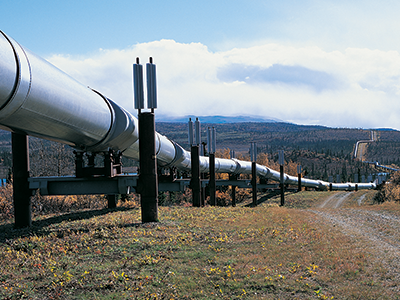As Montreal shows, the NEB alone cannot be Canada’s pipeline solution

Canada is one of the world’s largest hydrocarbon producers and, per capita, one of the world’s most energy- and carbon-intensive economies.
Astoundingly, however, not only do we still lack a coherent, viable climate policy, we still lack the ability – even an appropriate forum – to engage in meaningful debate. The National Energy Board on its own is not – and cannot be – the solution.
We lack a coherent set of policies on our energy system as a whole. A focus on specific production or transmission projects excludes consumption and demand. As inconvenient a truth as it may be, we still rely heavily on oil – and we will for a long time to come – for cars, truck transport, plane travel, farming operations, heat and light – and much more.
Transportation, agriculture and buildings are responsible for 25 per cent, 10 per cent and 10 per cent, respectively, of Canada’s greenhouse gas (GHG) emissions. Together, that’s almost half of the total. Yet where are the protests against air travel, against truck transport, against our personal driving habits, against downtown towers remaining lit all night while empty? These issues are raised from time to time, but if all things were treated equally by those objecting to the Energy East pipeline, we would not today even be able to build the TransCanada Highway.
And given that we need energy, we need it to be transported safely and sustainably – from wherever it may come. All options need to be considered, as highlighted by the recent deadly explosion and fire on one of Montreal’s busiest highways involving a diesel truck, by the recent spill of diesel from a train travelling through the heart of a Toronto residential area – and the tragedy of Lac Mégantic, which must never be repeated. Is a pipeline better or worse? If better, can it still be improved?
If the climate change and other environmental concerns being raised were not serious enough, add the fact that, after several centuries laden with mistakes, successive governments and indigenous communities are still struggling to find constructive ways forward. A small number of people cannot have a veto over decisions that have major economic consequences on the country as a whole – and thus the majority of Canadians. But we’re still struggling with how to get to Yes.
The NEB cannot, on its own, address either the larger energy system issues, climate change, or relations with indigenous Canadians. It is not designed to do so. Yet NEB hearings – first Northern Gateway, then Trans Mountain, and now Energy East – have become the lightning rod, seen as the only place for promoters to promote, objectors to object, claimants to make claims. It is not surprising, therefore, that the process is having difficulties. The stalled Energy East hearings in Montreal are just the most recent example.
So, what to do?
First, tweaking the regulatory process isn’t the answer. We need clear, coherent and actionable policies for the energy system as a whole. And while acknowledging the efforts of some provinces, it is not enough for each one to go it alone, resulting in a mish-mash. We need national leadership – and what will inevitably be some tough decisions.
Two, in order to restore public trust in the regulatory process, we have to first understand what its limits are. The NEB cannot create Canada’s climate change policies. Approval or not of a pipeline does not address consumption, demand or production. It cannot, on its own, address how to reduce Canada’s greenhouse gas emissions. And it cannot deal with the claims and concerns of indigenous Canadians.
Third, let’s make sure the NEB can do the job that it is supposed to do in terms of specific projects. It must address legitimate concerns about spill mitigation, water treatment, risk analysis of alternative modes of transport. This is what the regulatory process is meant to deal with. Unfortunately, the NEB has been struggling with public confidence – sometimes unfairly, given that it was never set up to address some of the major issues thrust upon it. But now there are additional allegations of bias and lack of transparency that have caused a postponement of the hearings in Montreal. The NEB must address these issues right away, with full transparency, in order to do its job.
We need a thorough examination of all transportation options, of all of the pros and cons in terms of safety and the environment, the level of risks associated with each, the likelihood of an accident and its effects. We need to be realistic, too. Denying one form of transport will not, as some would like, shut down the oil sands, but denying an effective way to get a valuable Canadian resource to the rest of Canada and to other markets is cutting off our nose to spite our face.
The NEB, once it addresses issues of credibility, is the right forum for this more limited analysis of safety and the environment – and once it decides, its decisions must be respected.
Source: Globe and Mail


